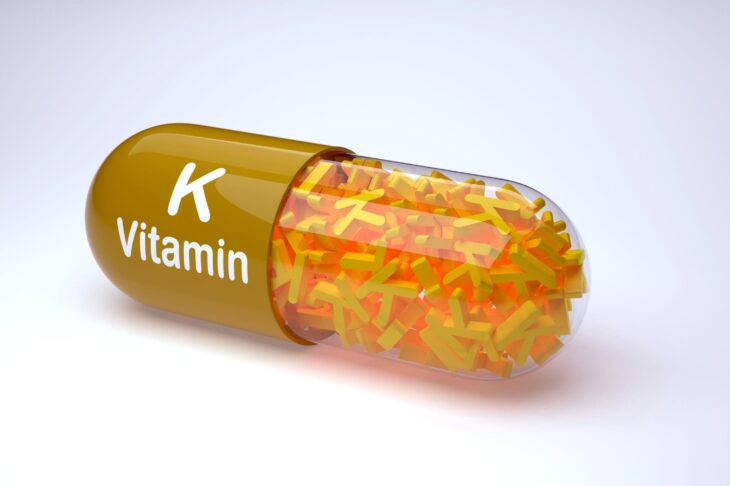
The Comprehensive Guide to the Benefits of Vitamin D3
Introduction
Vitamin D3, often referred to as the “sunshine vitamin,” is a fat-soluble vitamin that plays a vital role in various aspects of human health. While its primary function is to regulate calcium and phosphorus levels in the body, it has garnered attention for its potential benefits beyond bone health. In this comprehensive guide, we will explore the diverse health benefits of Vitamin D3, its essential functions in the body, dietary sources, potential deficiency symptoms, and its applications in modern health and well-being.
Introduction to Vitamin D3
What Is Vitamin D3
Vitamin D3, technically known as cholecalciferol, is a fat-soluble vitamin that is naturally produced by the body in response to sunlight exposure. It is also found in dietary sources and supplements. Vitamin D3 is one of several forms of vitamin D, and it is the most biologically active form.
Essential Functions of Vitamin D3
Vitamin D3 plays several essential roles in the body, including:
- Calcium Absorption: Its primary function is to regulate calcium absorption in the intestines, which is crucial for maintaining bone health.
- Bone Health: Vitamin D3 is integral for the development and maintenance of healthy bones, as it helps with the mineralization of bone tissue.
- Immune System Support: Emerging research suggests that it may play a role in modulating the immune system and reducing the risk of infections.
- Cell Growth and Repair: Vitamin D3 is involved in the regulation of cell growth and differentiation, which is essential for tissue repair and overall health.
- Inflammatory Response: It may have an impact on the body’s inflammatory response, with potential implications for various health conditions.
- Hormone Regulation: Vitamin D3 can act as a hormone, influencing the expression of genes and the production of other hormones in the body.
Health Benefits of Vitamin D3
Bone Health
One of the most well-established benefits of Vitamin D3 is its role in maintaining healthy bones. It facilitates the absorption of calcium and phosphorus in the gut, which is crucial for the mineralization of bone tissue. A deficiency in Vitamin D3 can lead to weakened bones, increasing the risk of fractures and conditions like osteoporosis.
Immune System Support
Vitamin D3 plays a role in modulating the immune system. It can enhance the body’s ability to fight infections, reduce inflammation, and regulate the immune response. While more research is needed, studies have suggested that maintaining optimal Vitamin D3 levels may reduce the risk of respiratory infections and autoimmune diseases.
Cognitive Function
Emerging research indicates a potential link between Vitamin D3 and cognitive function. Low levels of Vitamin D3 have been associated with cognitive decline and an increased risk of neurodegenerative conditions like Alzheimer’s disease.
Cardiovascular Health
Vitamin D3 may have a role in supporting cardiovascular health. Research suggests that adequate levels of Vitamin D3 are associated with a reduced risk of cardiovascular diseases. It can help regulate blood pressure and support overall heart health.
Mood and Mental Health
Some studies have shown that Vitamin D3 may influence mood and mental health. Deficiency in Vitamin D3 has been linked to an increased risk of mood disorders like depression. It is believed to affect the production of neurotransmitters and regulate genes involved in mood regulation.
Immune-Related Conditions
Vitamin D3 has been studied in the context of various immune-related conditions, including multiple sclerosis, rheumatoid arthritis, and type 1 diabetes. While the results are not conclusive, there is evidence to suggest that maintaining sufficient Vitamin D3 levels may reduce the risk of these conditions.
Cancer Prevention
Research is ongoing, but some studies have explored the potential role of Vitamin D3 in reducing the risk of certain cancers, particularly colorectal, breast, and prostate cancer. Vitamin D3 may influence cell growth and inhibit the development of cancerous cells.
Dietary Sources of Vitamin D3
Vitamin D3 can be obtained from a variety of dietary sources, supplements, and sun exposure. Some common dietary sources of Vitamin D3 include:
- Fatty Fish: Salmon, mackerel, and tuna are excellent sources.
- Egg Yolks: Egg yolks contain Vitamin D3, but it’s more abundant in the yolks of eggs from hens raised outdoors or those specifically fortified with Vitamin D3.
- Liver: Beef and chicken liver provide some Vitamin D3.
- Dairy Products: Many dairy products, such as milk and yogurt, are fortified with Vitamin D3.
- Mushrooms: Some types of mushrooms, like shiitake and maitake, contain small amounts of Vitamin D3.
- Fortified Foods: Various foods, including orange juice, cereals, and plant-based milk alternatives, are fortified with Vitamin D3.
Vitamin D3 Deficiency
Vitamin D3 deficiency can have adverse effects on health. Common risk factors for deficiency include limited sun exposure, a lack of dietary sources, dark skin, and certain medical conditions. Symptoms of Vitamin D3 deficiency may include:
- Bone pain and muscle weakness.
- Increased susceptibility to infections.
- Mood disorders, such as depression.
- Impaired cognitive function.
- Hair loss.
- Fatigue and general weakness.
It’s crucial to recognize the symptoms of deficiency and consult a healthcare provider for a blood test if you suspect low Vitamin D3 levels. Supplementing with Vitamin D3, as directed by a healthcare professional, is often necessary to address deficiency.
Modern Applications of Vitamin D3
Supplements
Vitamin D3 supplements are widely available and are commonly used to maintain or raise Vitamin D3 levels. They come in various forms, including capsules, soft gels, and liquid drops. Supplements are often recommended for individuals at risk of deficiency, such as those with limited sun exposure or specific medical conditions.
Fortified Foods
Many foods are fortified with Vitamin D3, particularly dairy products and plant-based milk alternatives. These fortified foods offer an additional source of Vitamin D3 for those who may have dietary restrictions or limited access to sunlight.
Sunlight Exposure
A natural and cost-effective way to obtain Vitamin D3 is through sunlight exposure. Ultraviolet (UV) radiation from the sun triggers the synthesis of Vitamin D3 in the skin. However, the amount of sun exposure required can vary depending on factors like location, time of year, and skin tone. It’s essential to find a balance between obtaining adequate Vitamin D3 and protecting the skin from harmful UV radiation.
Conclusion
Vitamin D3, often called the “sunshine vitamin,” is a vital nutrient with a wide range of health benefits. It plays a fundamental role in bone health, immune system support, cognitive function, cardiovascular health, and overall well-being. While many people can obtain sufficient Vitamin D3 from sunlight and dietary sources, supplements are commonly used to address deficiency and support optimal health.
Maintaining optimal Vitamin D3 levels is crucial for preventing deficiency-related health issues and enhancing overall well-being. It’s advisable to consult with a healthcare professional to determine the most suitable approach to meet your individual Vitamin D3 needs, whether through supplements, dietary sources, or sensible sun exposure. As research continues to uncover the vast benefits of Vitamin D3, it remains a key player in the realm of modern health and well-being
- The Comprehensive Guide to the Benefits of Vitamin D3 - October 25, 2023
- The Comprehensive Guide to the Benefits of Reishi Functional Mushrooms - October 25, 2023


